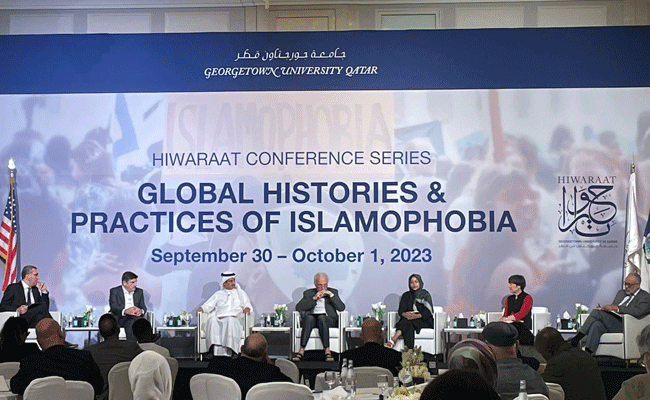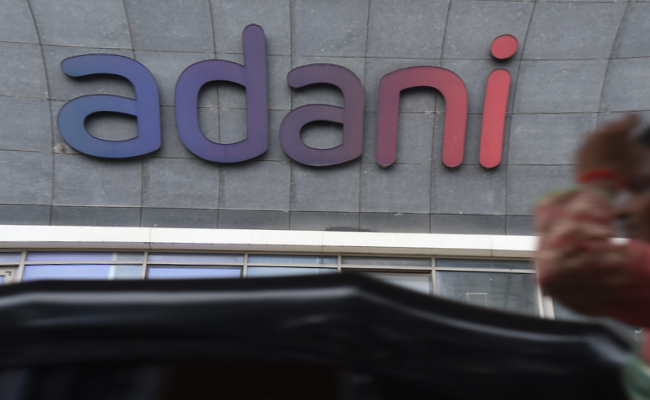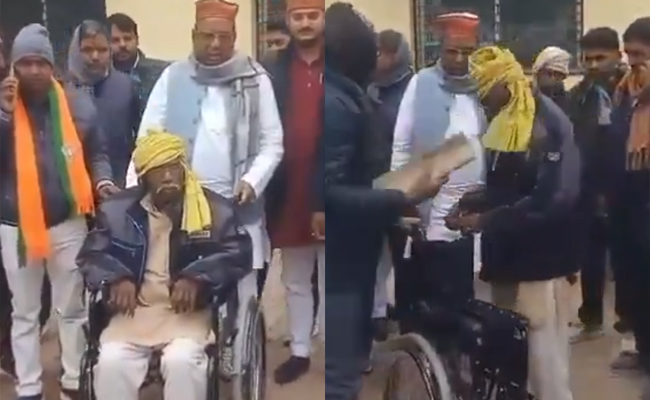Qatar: Georgetown University in Qatar (GU-Q) commenced its conference titled “Global Histories and Practices of Islamophobia” with a powerful call to unite against Islamophobia, discrimination, bigotry, and racism on a global scale. This initiative comes in response to the alarming rise in anti-Muslim bias and hate-related incidents worldwide. The conference aims to critically examine Islamophobia’s pervasive presence in political, social, educational, and other spheres.
During his opening keynote speech, H.E. Ambassador Ebrahim Rasool, Founder of the World for All Foundation, shed light on the deep-rooted issues surrounding Islamophobia. He emphasized, “We create isms and phobias for every difference, dressing it up as an anxiety of the unknown, leading to surveillance, harsh punishments, and stringent immigration policies, as if these are normal laws to implement. These elements have evolved into what can only be described as mainstream extremism.” H.E. Ambassador Rasool highlighted the burden placed on victims of Islamophobia, stating, “When you label it a fear, a phobia, you shift the burden onto the victim. They endure discrimination and must also prove they are not the source of fear.”
Addressing the current situation, H.E. Ambassador Rasool noted the unique challenges faced by the “Muslim other” globally, especially in Western countries where nearly 10% of the population constitutes the Muslim minority. He emphasized that Islamophobia has transcended Western borders and has found a foothold in countries like India, China, Myanmar, and others with Muslim minorities. He stressed the importance of solidarity in combating all forms of bigotry, transcending religious, racial, and ethnic boundaries.
In response to inquiries about the role of diplomacy and sports in combating Islamophobia, H.E. Ambassador Rasool highlighted the effectiveness of public diplomacy, as demonstrated by Qatar’s hosting of the FIFA World Cup 2022TM, in countering anti-Islamic sentiment.
Dr. Abdullah Al-Arian, Associate Professor of History at GU-Q and a conference co-organizer, delivered the welcoming remarks, emphasizing the dual nature of Islamophobia as a globalized yet locally rooted phenomenon. He expressed the conference’s objective to unravel the complexities of Islamophobia, explore its impact on populations worldwide, and devise strategies to address this challenge across various spheres.
The conference, scheduled until Sunday, October 1, features leading scholars and academics analyzing the contemporary drivers of Islamophobic practices and their global interconnections. In addition to informative sessions, public workshops and a student-led forum will focus on combating Islamophobia within university campuses.
For comprehensive details about the conference and its sessions, please visit [https://hiwaraat.qatar.georgetown.edu/islamophobia/]
Let the Truth be known. If you read VB and like VB, please be a VB Supporter and Help us deliver the Truth to one and all.
Bengaluru: The Adani Group has become the lowest bidder for both packages of the proposed 16.75-km tunnel road project in Bengaluru, according to sources familiar with the bids opened by Bengaluru Smart Infrastructure Ltd (B-SMILE).
According to a report published by Deccan Herald on Monday, the government estimated the entire project to cost Rs 17,698 crore, while the Adani Group has quoted Rs 22,267 crore. The ports-to-power conglomerate’s bid is about 24% higher for the first package and 28% higher for the second than the government’s estimates, a gap that could prompt authorities to seek the state Cabinet’s approval on the tenders’ fate.
M Maheshwar Rao, Chief Commissioner of the Greater Bengaluru Authority (GBA), who is also the Managing Director of B-SMILE, declined to comment.
ALSO READ: Uttar Pradesh: Elderly man stands up after posing in wheelchair with BJP MLA, video goes viral
In all, four infrastructure companies had participated in the tenders for the project, which has been proposed under the build-operate-transfer (BOT) model, with 40% funding from the government and the remaining investment to be raised by the private concessionaire.
During the technical evaluation, the Adani Group and the Hyderabad-based Vishwa Samudra Engineering Ltd qualified for the financial round.
According to the report, Dilip Buildcon was disqualified due to a clause that bars firms linked to collapsed bridges or tunnels, while Rail Vikas Nigam Ltd (RVNL) was rejected because its joint venture (JV) partner did not meet technical requirements.
With only two companies left in the fray, the Adani Group emerged as the lowest bidder, ahead of Vishwa Samudra.
The tunnel project officially named the North–South underground corridor, is part of the Congress government’s ambitious to ease Bengaluru’s traffic congestion by building two major underground roads (totalling 40 km) along with 13 flyovers and elevated corridors.
The project is the brainchild of Deputy CM D K Shivakumar, who is also the Bengaluru development minister.
The proposal, however, has faced criticism and political opposition, especially from senior BJP leaders, who object to the alignment that requires acquiring six acres of Lalbagh Botanical Garden, a historic green space.
As per the report, Urban mobility experts have also warned that the tunnel corridor may clash with the alignment of Namma Metro’s Phase 3A, possibly affecting the metro expansion.





